The old village of Aceredo is seen in its entirety for the first time since it was flooded over in 1992. Emilio Morenatti / The Associated Press
As a prolonged drought continues to choke northwestern Spain, a ghost village has been revealed at the bottom of the Alto Lindoso reservoir.
The former village of Aceredo, which sits on the Spanish-Portugal border, was submerged three decades ago when a hydropower dam flooded the valley to create the reservoir.
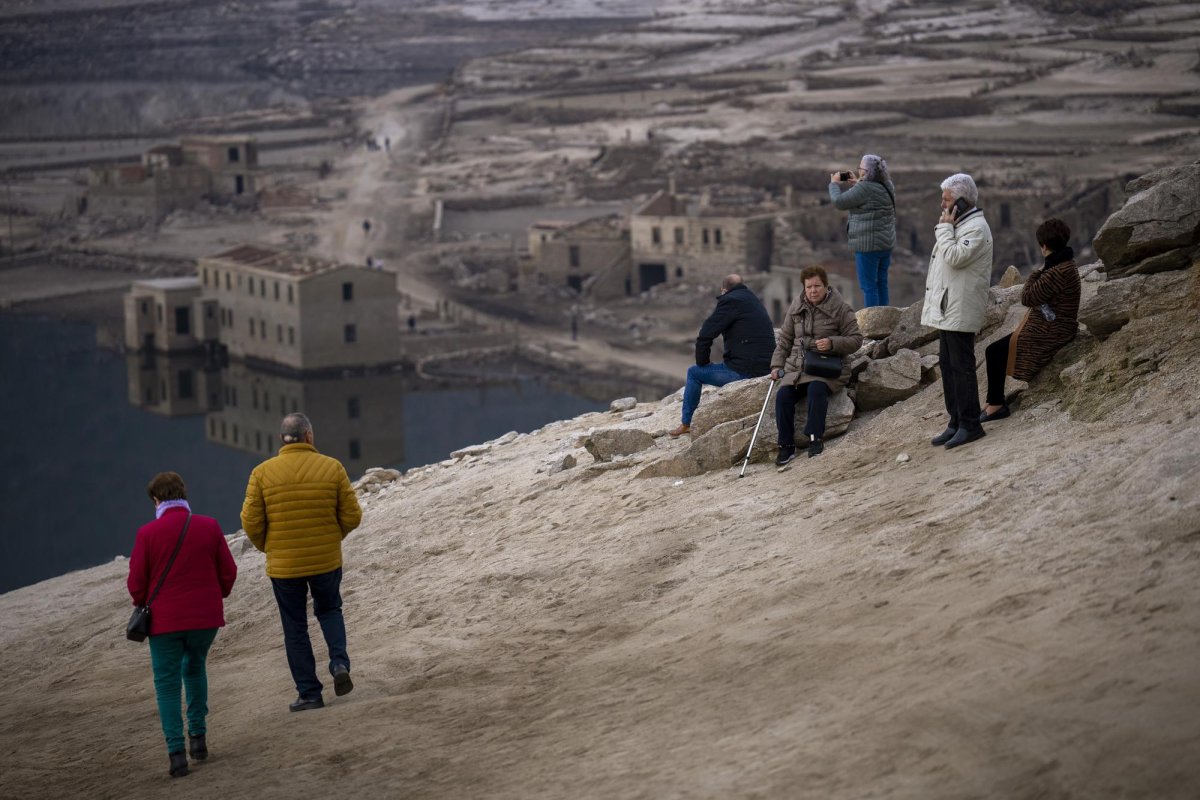
Visitors look at the old village of Aceredo emerged due to drought at the Lindoso reservoir, in northwestern Spain, Saturday, Feb. 12, 2022. Emilio Morenatti / The Associated Press
And, according the The Associated Press, the remaining rooftops of some buildings are sometimes spotted when the water supply dips.
“It’s as if I’m watching a movie. I have a feeling of sadness,” local resident Maximino Perez Romero told Reuters.
“My feeling is that this is what will happen over the years due to drought and all that, with climate change.”
The reservoir is currently at 15 per cent of its capacity following a drought; there hasn’t been any precipitation in the area for two months, and it’s threatening to become worse.
In the last three months of 2021, Spain recorded just 35 per cent of the average rainfall it had seen during the same period from 1981 to 2010. But there has been almost no rain since then.
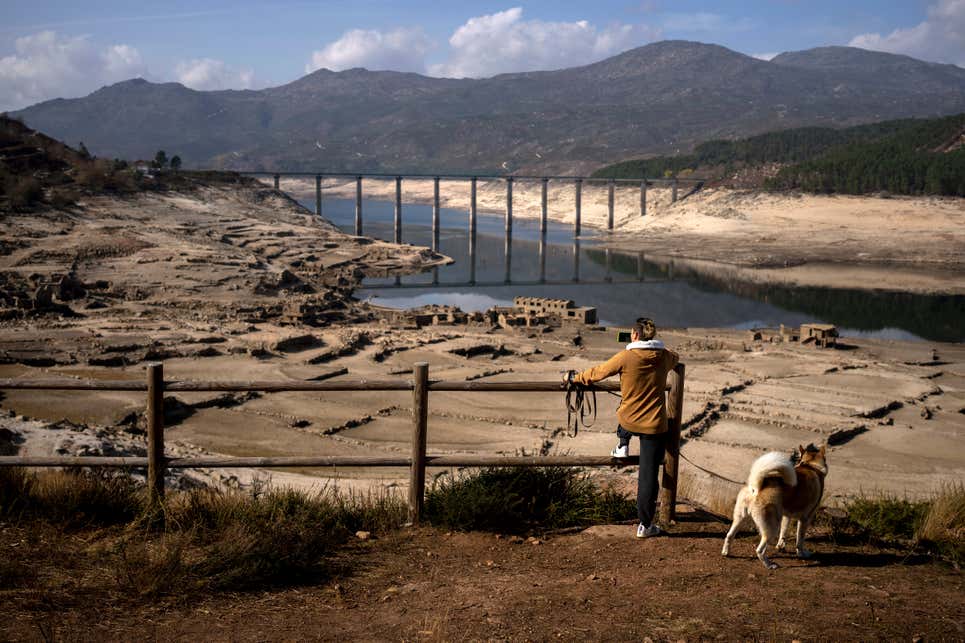
Roofs peeking out of the water have been a common sight every summer at the Lindoso Reservoir. Emilio Morenatti / The Associated Press
On Feb. 1, Portugal’s government ordered six dams, including Alto Lindoso, to nearly halt water use for electricity production and irrigation, due to the worsening drought.
A ministry source told Reuters that drought indicators showed a potential worsening in the coming weeks, but did not yet detect a generalized problem throughout the country.
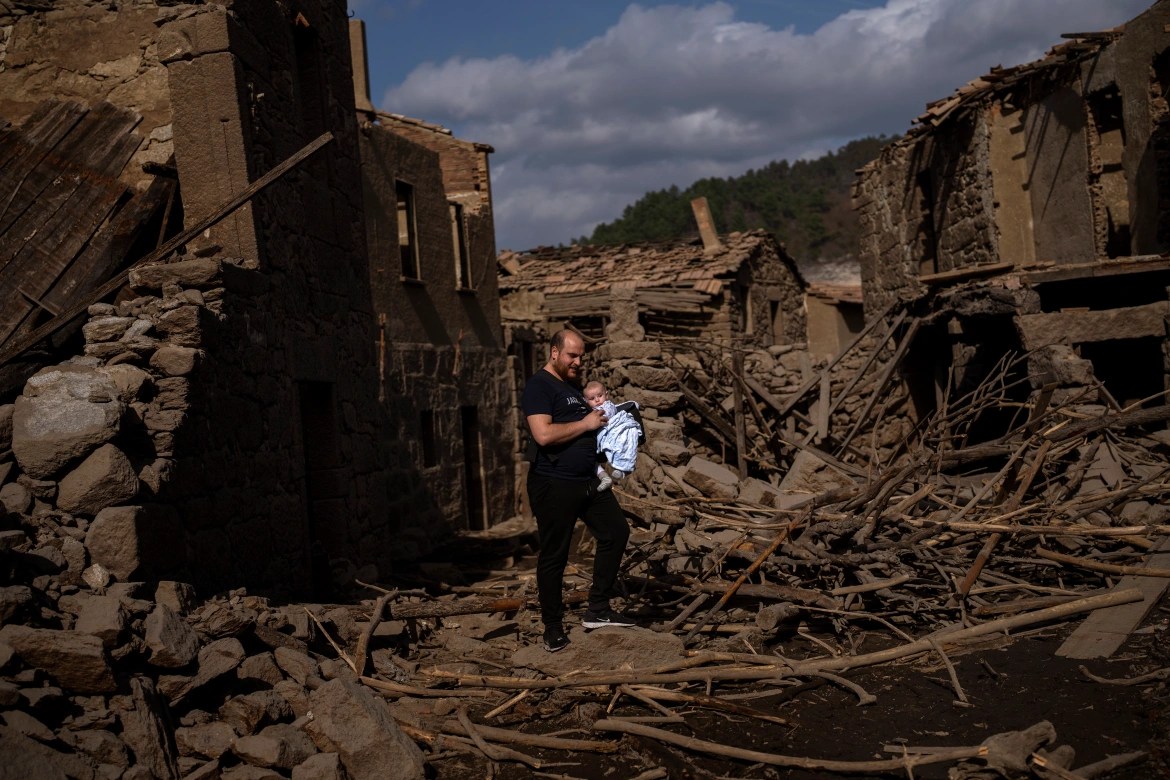
Rafael Monlina, 33, holds his four-month-old son Marcos as they visit the old village of Aceredo, submerged three decades ago when a hydropower dam flooded the valley, emerged now due to drought at the Lindoso reservoir, in northwestern Spain, Saturday, Feb. 12, 2022. Emilio Morenatti / The Associated Press
José Luis Penín, a 72-year-old local, told AP he used to stop at the bar in Aceredo after a long day of fishing.
“The whole place used to be all vineyards, orange trees. It was all green. It was beautiful,” he said.
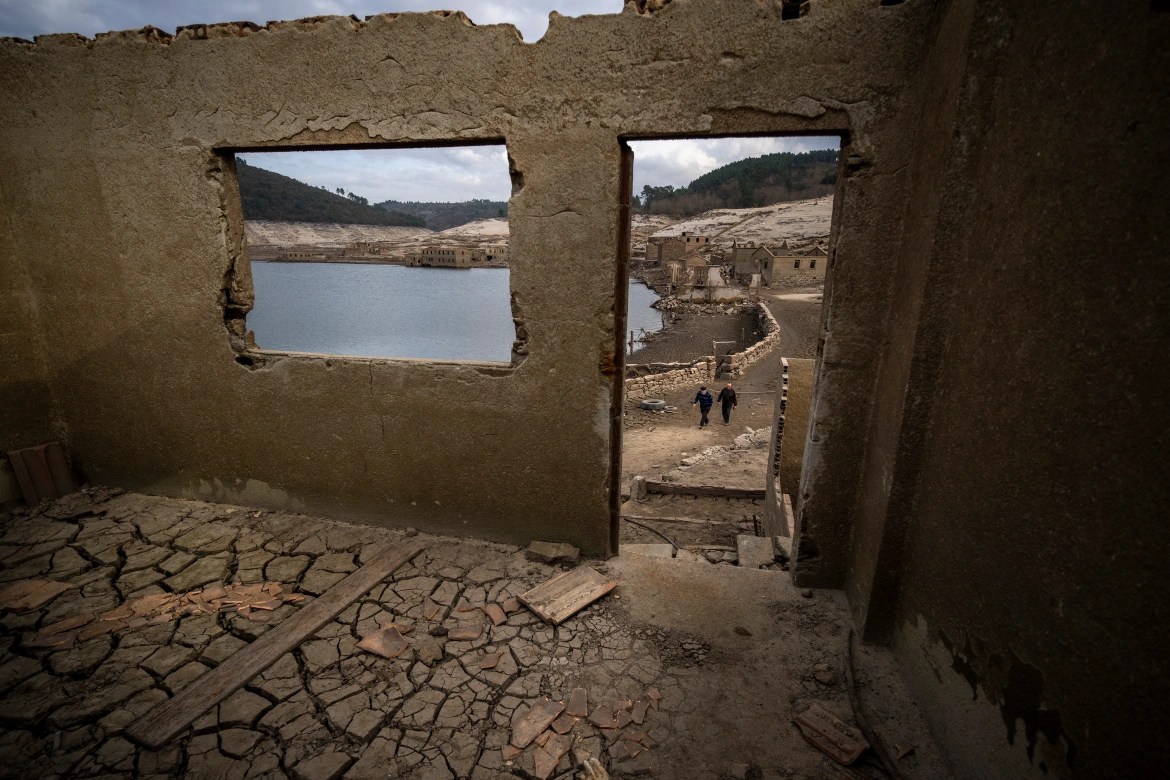
A house of the old village of Aceredo. Emilio Morenatti / The Associated Press
“Look at it now,” he continued, pointing at the cracked, yellow bed of the reservoir. ”It’s so sad.”
Photos from the riverbed show a town preserved in time — a modern-day Atlantis.
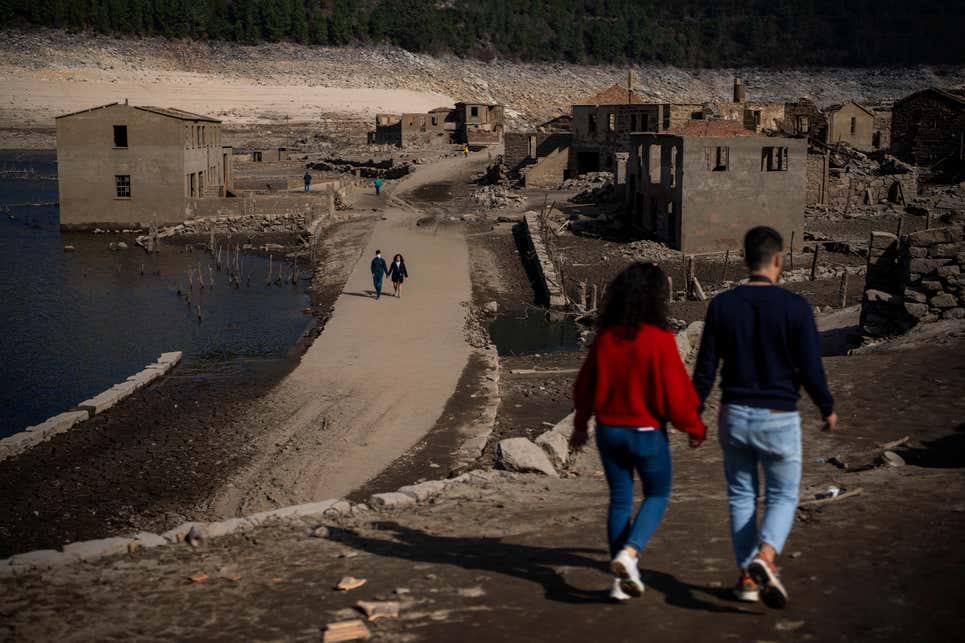
Parts of the old village of Aceredo. Emilio Morenatti / The Associated Press
Buildings with partially collapsed roofs, crates full of empty beer bottles, even an old drinking fountain remain intact.
Because the water is so low, people wander the village, walking on the dry, cracked floor of the riverbed. It’s the first time the entire town has been exposed since the dam was built.
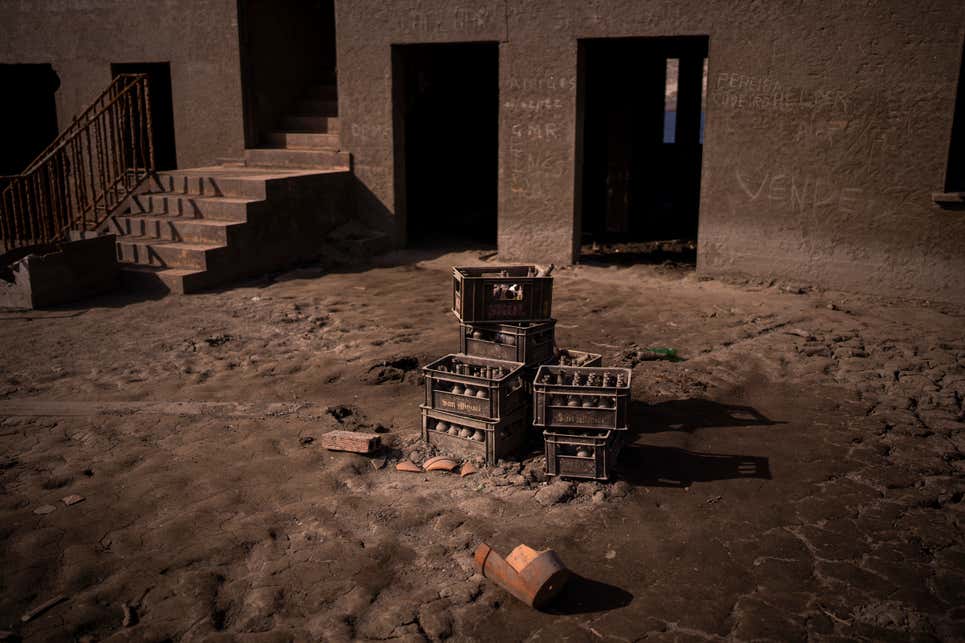
Boxes with old bottles of beers are photographed outside a store at the old village of Aceredo. Emilio Morenatti / The Associated Press
While the arid zones of the Iberian Peninsula have historically experienced periods of drought, experts say climate change has exacerbated the problem.
This year, amid record levels of low or no rainfall whatsoever, farmers in both Portugal and Spain — who are growing produce for all of Europe — are worried that their crops for this season will be ruined.
